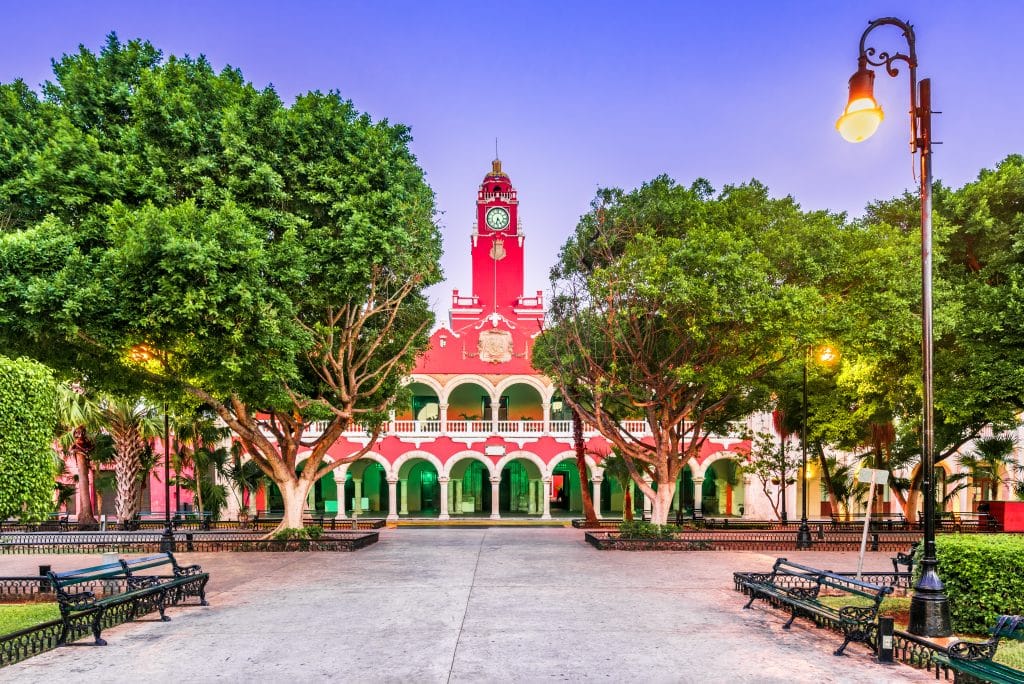For many years, Merida is considered one of the safest travel destinations in Mexico. Not only is it safe to wander around alone day and night, but pickpocketing and other petty crimes are less common here.
LATEST NEWS/UPDATES from Merida:
January 18, 2024: Research shows that Merida is one of the four safest Mexican cities
According to Inegi’s National Urban Public Security Survey, Mérida ranks fourth in Mexico for the lowest perception of insecurity, with only 22.2% of respondents feel unsafe. The city is known for its minimal incidence of high-impact crimes, which contributes to its reputation as a haven for families from Mexico and abroad. The sense of security in Mérida has made it a favorite destination to settle, attracting an increasing population due to its comfortable and safe environment where you can walk the streets at any time.
Areas to avoid
- Although there is nothing a visitor should do in South Merida, it is recommended not to visit this place as it is the least safe part of the city.
- Unfortunately, pickpocketing is common at the Mercado Lucas de Galvez (market) in the center, so make sure you watch your belongings there.
Merida is generally no less safe at night than during the day. It is important to remember that drinking alcohol – and especially if you drink too much of it – reduces safety levels under all circumstances and in all environments. Choose Paseo Montejo and Centro Historico (downtown) if you’re going out late at night.
Common scams
Merida is susceptible to various scams, and it is crucial to be vigilant. Here are some common scams to be careful of:
The fake guide fraud: Locals may approach you and pose as official guides offering city tours. However, they may charge excessive fees or take you to tourist traps. Be careful with such individuals.
The overpaying taxi driver: Some taxi drivers try to overcharge tourists, especially those who are unfamiliar with the local currency. Check fare estimates and choose reputable taxis.
The pickpocketing fraud: Pickpocketing is common in the busy areas of Merida, including markets and tourist spots. Keep a close eye on your belongings and avoid carrying large amounts of cash.
The Fake Police Officer Scam: Scammers may pose as police officers, ask for identification or search for belongings. Always insist on official identification and do not surrender your passport or other personal documents.
Official advice
US Travel advice
There are currently no travel restrictions imposed on US government employees visiting the state of Yucatan, home to popular tourist destinations such as Valladolid, Merida, Uxmal and Chichen Itza. This means they can help American citizens in need.
Canada Travel advice
Canada has not issued specific travel advice for Merida.
When arriving in Mexico by plane, it is necessary to download the tourist card issued by the Mexican authorities upon entry.
Depending on the airport you arrive at:
- An immigration officer will stamp your passport and indicate the permitted duration of your stay in Mexico, or
- You can go to an E-gate kiosk, where you scan your passport and register your entry into the country itself. Only choose this option if you enter Mexico as a tourist.
Safety Travel Tips for Merida
- Keep valuables in the front pockets: This advice remains relevant even in areas of Merida with a low risk of theft. Be careful, especially in markets and southern districts.
- Take out comprehensive travel insurance: Having reliable travel insurance is crucial as it will cover all costs in case of illness, so you don’t have to pay the bills out of your pocket.
- Dress casually: Choosing casual clothing not only reduces the chance of attracting the attention of criminals, but also minimizes the risk of your phone or wallet being stolen.
- Choose renowned restaurants: Unfortunately, food-related illnesses are common among travelers in Mexico due to poor hygiene or undercooked food.
- Only participate in official tours: It is advisable to participate in highly rated tours to ensure the best experiences and travel with guides who prioritize safety protocols.





